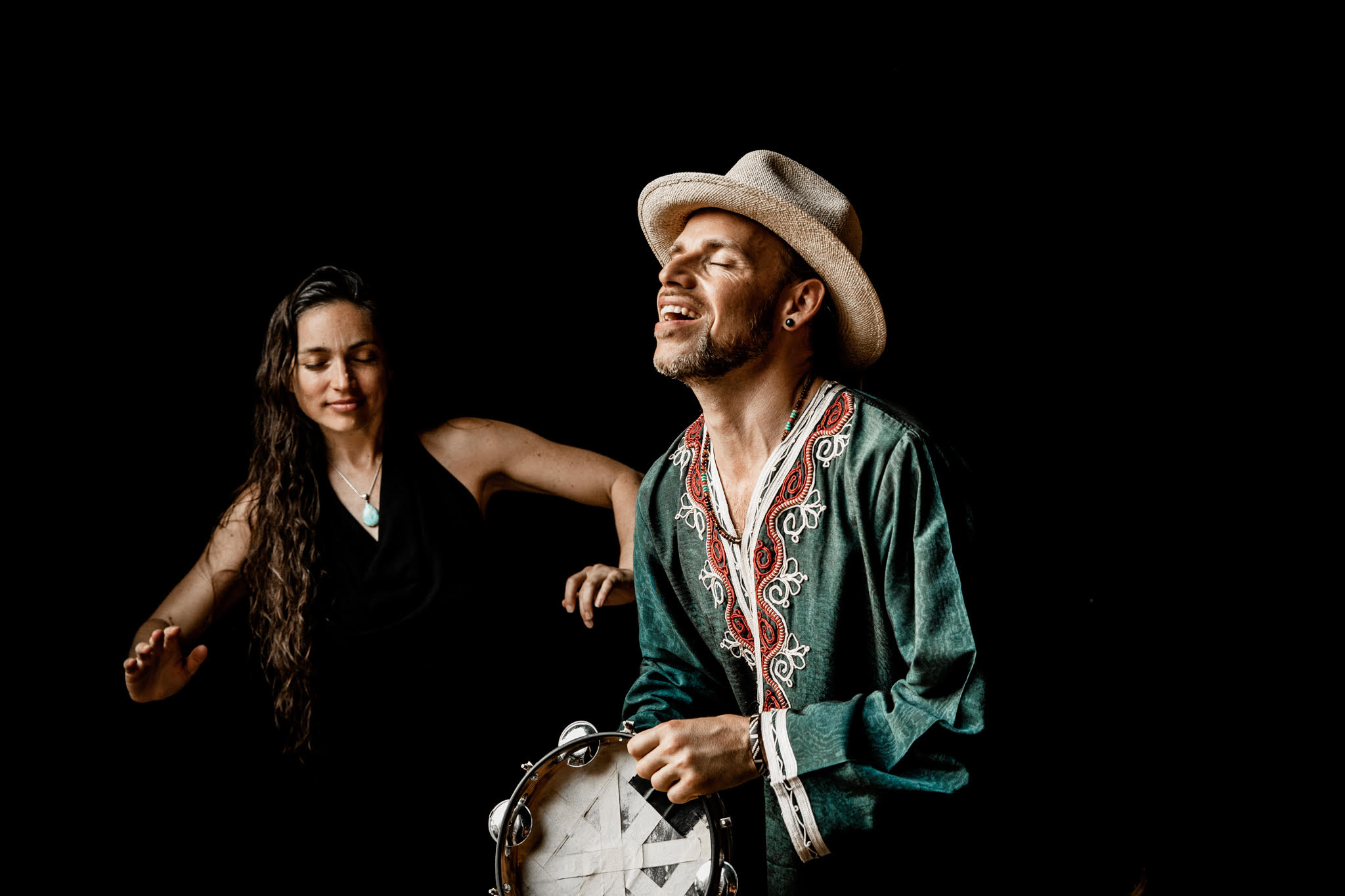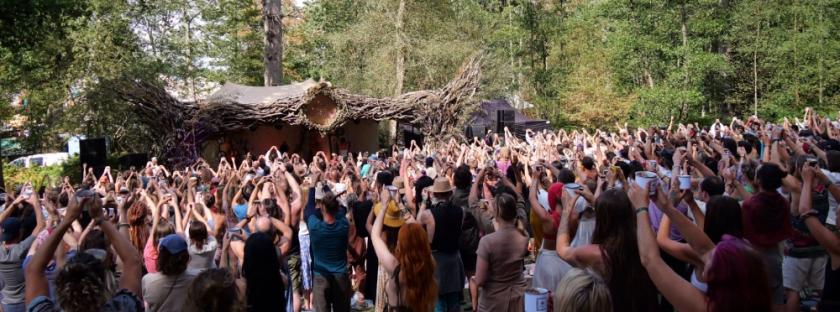I had been softened up for the Medicine Festival by a recent visit to the global music extravaganza WOMAD – a trio of us met a guy called Paul aka SpriITman – an ex-IT expert who after a health crisis realised he was a healer. Bear with me on this.
All three of us, no spring chickens, had health issues. I had been hospitalised for a couple of nights after a bad bike crash and couldn’t sleep on my shoulder, one of us had bad skin problems on her hands, and other had a damaged knee. After some magic from SpirITman, all three of us were essentially cured. Sleeping was ok again, hand more or less fine, and back to playing football. This seemed more than psychosomatic or co-incidence.
As someone of the punk generation, a certain scepticism towards all things New Age comes with the territory, but it would, I now realised, be stubborn to be dismissive, as the Medicine Festival’s core element, as well as loads of music, is healing, with hundreds of practitioners there.
Worth mentioning, which may attract some people and put many off, is there is no alcohol on sale, the phone signal/internet is deliberately bad in the central area, and you have to climb a hill to get a decent signal, and getting a proper coffee is hard work. That’s not so say there are no mind altering substances around, there seemed to be a fair amount of partaking of mushrooms, notably micro-dosing (I can recommend, even if it may be illegal…).
The other thing that softened me up, and more relevant for a music page, is the element of music and sound healing, numerous practitioners were at the Festival. I had been researching the topic for a documentary by SAMA in Seattle, and music and healing go back to being mentioned on hieroglyphs on Egyptian tombs in 3000 BCE to ancient shamanism.
For the film we went to Morocco to shoot Aissawas who go into music-induced trance instead of taking pills when faced with mental issues (the oldest mental hospital I am aware of opened around 900 years ago in Fez and treated its patients with music).
 The scientific research into this area is still in its infancy, but with new brain scanning and bio-marker technology progress is being made. Johns Hopkins University now has a Music and Healing department, for example. As the 18th century philosopher Novalis said, “Illness is a musical problem.”
The scientific research into this area is still in its infancy, but with new brain scanning and bio-marker technology progress is being made. Johns Hopkins University now has a Music and Healing department, for example. As the 18th century philosopher Novalis said, “Illness is a musical problem.”
Meanwhile, a trend at the Healing Village, organised by Mamma Wellbeing was sound – like the empathetic Alastair Smith, who not only works his magic with tuning forks and gongs but teaches “vocal tai-chi” (you may have to look that up). I connected with Tim Morrison, who held a 90-minute music event. Yes, he had the largest didgeridoo I’d ever seen, but also had a mini-synth, guitar and looping gear. The audience was lying down. I might have been bored by this a few years back, but actually he was expert on taking the audience (I want to say congregation) on a journey, a drug-free trip. I’ve experienced similar sensations at things like the Aissawa, mentioned above, or other Sufi traditions.
I made the mistake of not going till Saturday, as a friend and colleague from LA (Raghav Mani from Naya Beat – do check them out) had a flying visit to London on Friday (it started on Thursday). It takes a day to really get into the mood here, but fortunately Tim Morrison got me on board.
Experience has taught that at any festival like this, the best stuff is often happened upon by accident, whether music or talks. Vandana Shiva was a revelation. Having seen Dale Vince talk at Womad, a man with a green mission, India’s equivalent is Vandana Shiva – she started decentralised Seed Banks, was threatened by Monsanto, but is fearless. One question at the end addressed what some people criticised at Medicine Festival, that some people go to India for a month and come back claiming to be esoteric teachers or whatever. She said lean into your own gifts and authenticity.
Having just read an article about how Europe’s beaches were covering up and the new wave of prudishness, it was refreshing, liberating even, that most of us bathing in the lake were naked. Of course, as anyone who ever been on a nudist beach knows, eroticism is hardly there.
There was a lot of music, often in out of the way places – one of the best was a South American mother singing with her two kids, maybe aged three and five playing flute and drums a couple of tents down from me. The Sound Temple had consistently interesting music, and the Sacred Glade was the most atmospheric venue, tucked away in the woods. Among the most memorable music was the dynamic mantra singalongs of Rhadika Das, the charismatic Brazilian Porangui (pictured above), the lullabies of Bhume. and the fierce Ghanaian grooves of KOG, but it was a festival where the music acts were if not incidental, not really the main focus.















Add comment